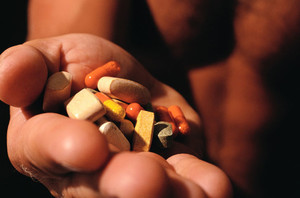A provision introduced in October 2017 awards eligible drugmakers 180 days of exclusivity to market a generic version of one of a list of 267 medicines for which no generic version currently exists. The provision was introduced to encourage generics of off-patent drugs without generics, however, some believe it could lead to high prices [1].
Encouraging generics could cause high prices
Generics/Research
|
Posted 25/05/2018
 1
Post your comment
1
Post your comment

The US Food and Drug Administration (FDA) updated its list of off-patent, off-exclusivity drugs without an approved generic in December 2017 [2]. The new provision is intended to increase competition in the market for prescription drugs by facilitating the entry of lower-cost generics. However, this could backfire, according to Shraddha Chakradhar and Roxanne Khamsi, especially in the uncommon cases in which a brand-name drug counterpart is not available.
A US Government Accountability Office report released in August 2016 concluded that generics prices declined overall by 59% between 2010 and 2015. However, this report mainly covered oral drugs, whereas there have been huge price increases observed for non-oral generics. In fact, the same report suggests that prices for non-oral drugs might be increasing: 315 of the 1,441 drugs it examined experienced ‘extraordinary price hikes’ over this time period that could not be explained by inflation. Of these 315 drugs, 18% of the price increases affected ophthalmic drugs, such as eye drops, and 46% involved topical drugs, such as creams and ointments.
One problem with the list is that drugmakers have known about these drugs already for a long time and yet have still not made generics. This could be because only 36 of the drugs with sales of more than US$15 million a year are not specialty (difficult-to-make) products, while 33 products on the list had no US sales in 2017. However, in cases where there is little or no brand-name competition the new provision could be used to the advantage of drugmakers. For example, the thyroid-disorder treatment liotrix (Thyrolar-3) that is on the list of 267 drugs eligible for market exclusivity is also listed on FDA’s list of drug shortages.
Lack of competition has been blamed for many of the recent price hikes in old generics. A US-based retrospective cohort study found that generics prices increase when competition is low or non-existent [3]. For example, in August 2015, Turing Pharmaceuticals increased the price of its newly acquired 62-year-old infectious disease drug Daraprim (pyrimethamine) from US$13.50 a tablet to US$750 – a 5,000% price hike [4].
Generics makers Apotex and Teva Pharmaceutical Industries have expressed optimism about the new law although they admit there are still questions about how FDA plans to implement the new provision. However, many still consider the repercussions of the new 180-day exclusivity law as something to keep an eye on.
Conflict of interest
The authors of the research paper [1] did not provide any conflict of interest statement.
Related articles
Mergers could be causing price increases for generics
FDA forms working group to increase generics competition
References
1. Chakradhar S, Khamsi R. Angst about exclusivity: the potential cost of incentivizing makers of generic drugs. Nat Med. 2017;23(10):1114-6.
2. GaBI Online - Generics and Biosimilars Initiative. FDA updates its list of drugs without generics [www.gabionline.net]. Mol, Belgium: Pro Pharma Communications International; [cited 2018 May 25]. Available from: www.gabionline.net/Guidelines/FDA-updates-its-list-of-drugs-without-generics
3. GaBI Online - Generics and Biosimilars Initiative. Generics prices increase when competition decreases [www.gabionline.net]. Mol, Belgium: Pro Pharma Communications International; [cited 2018 May 25]. Available from: www.gabionline.net/Generics/Research/Generics-prices-increase-when-competition-decreases
4. GaBI Online - Generics and Biosimilars Initiative. Senator calls for FTC to investigate drugmakers for antitrust violations [www.gabionline.net]. Mol, Belgium: Pro Pharma Communications International; [cited 2018 May 25]. Available from: www.gabionline.net/Policies-Legislation/Senator-calls-for-FTC-to-investigate-drugmakers-for-antitrust-violations
Permission granted to reproduce for personal and non-commercial use only. All other reproduction, copy or reprinting of all or part of any ‘Content’ found on this website is strictly prohibited without the prior consent of the publisher. Contact the publisher to obtain permission before redistributing.
Copyright – Unless otherwise stated all contents of this website are © 2018 Pro Pharma Communications International. All Rights Reserved.
Posted 27/05/2018 by k v Narale
Price generic
First posted 27/5/2018 ----
To,
Cost and Quality two side of coin, REGULATORS are taking care safety efficacy and quality
But other side, AT WHAT COST ??
Global burning issue Price medicine
Profit making manufacturing unit should control by each nation applying NATIONAL PRICE CONTROL AUTHORITY
Unfortunately willingness of political not taking interest,
Price regulation Control authority to reform Expert to appointed
INCREASE Competition of GENERIC manufacturers can control PRICE
MEDICINE Patent POOL - helps to reduce cost
Compulsory License
Any patent should not valid for not for 5 to 10 years Global price control authority
Profit making attitude weak regulation price control 70 % nation not have proper policy price control
PRICE COST Essential medicine Prices are in control MNC Manufacturers Sorry to say Gov helpless to control due not proper plan policy methodology have review and reform regulation
REGULATOR FDA and PRICE CONTROL SHOULD WORK UNDER ONE ROOF
it wiil affect to control Cost
Example INDIA
failure of Price control authority for pharmaceutical
kvnarale@gmail.com
ONLY NGO GROUP HELP TO SOCIETY we decide form FOUNDATION
NARLEX SERVOMEDI FOUNDATION
STARTED
To reduce cost of medicine medical device health care and Improve quality healthcare delivery in INDIA
Not supported promotional activity in India essentuial medicine
kvnarale@gmail.com
+919860363666
PUNE INDIA
Most viewed articles
The best selling biotechnology drugs of 2008: the next biosimilars targets
Global biosimilars guideline development – EGA’s perspective
Related content
Japan’s drug shortage crisis: challenges and policy solutions
Saudi FDA drug approvals and GMP inspections: trend analysis
Generic medications in the Lebanese community: understanding and public perception
Community pharmacists’ understanding of generic and biosimilar drugs: Lebanon case study
Generic medications in the Lebanese community: understanding and public perception

Generics/Research Posted 23/01/2024
Community pharmacists’ understanding of generic and biosimilar drugs: Lebanon case study

Generics/Research Posted 08/09/2023
The best selling biotechnology drugs of 2008: the next biosimilars targets








Post your comment